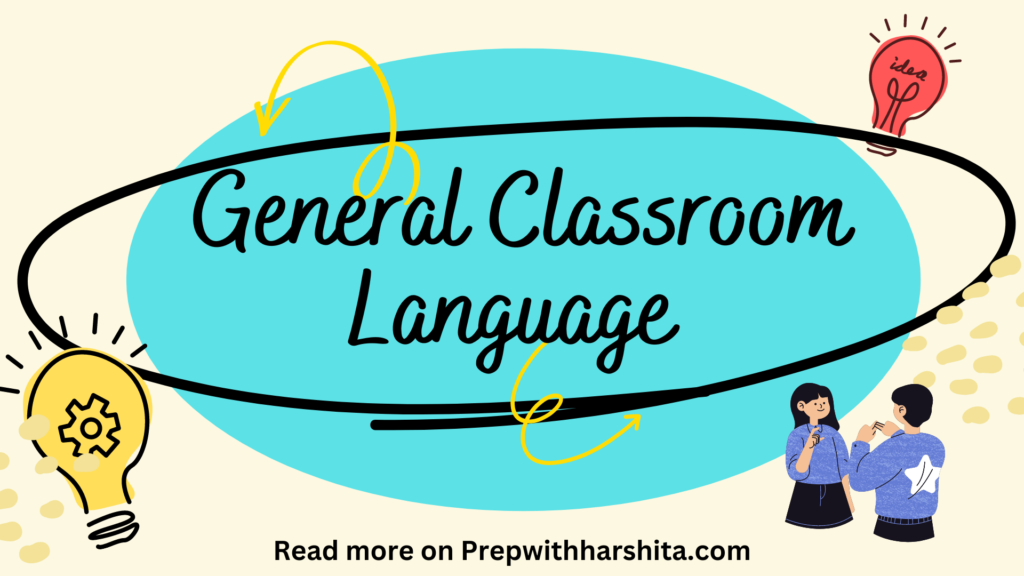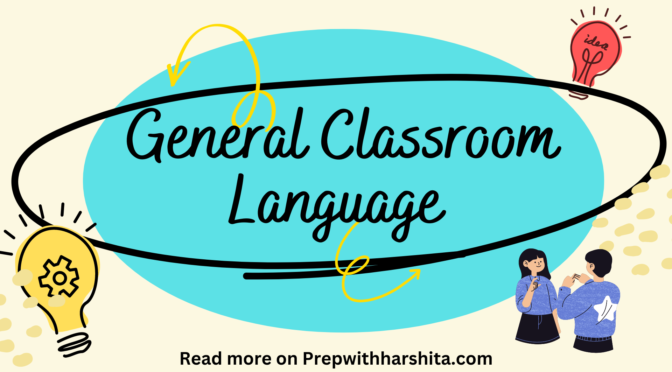General classroom language refers to the commonly used phrases, instructions, and expressions that teachers use to facilitate communication and create a positive learning environment. These language patterns and expressions play a crucial role in classroom management, instruction, and student engagement.
Here are some examples of general classroom language and their explanations:
- Greetings and Attendance:
- “Good morning/afternoon, class!” – A common greeting used to initiate the start of the class.
- “Let’s take attendance.” – Indicates the beginning of the attendance-taking process.
- “Raise your hand if you’re present.” – Instructs students to indicate their presence by raising their hand.
- Getting Attention:
- “May I have your attention, please?” – A polite request to redirect students’ focus towards the teacher.
- “I need everyone’s eyes up front.” – A directive to ensure students are looking towards the teacher or the front of the classroom.
- “Quiet, please.” or “Silent, please.” – Requests for students to stop talking and listen attentively.
- Instructions and Directions:
- “Please take out your textbooks/pencils/notebooks.” – Instructs students to retrieve specific materials from their bags.
- “Turn to page X.” – Directs students to open their textbooks or notebooks to a specific page.
- “Work individually/in pairs/groups.” – Indicates the desired mode of work for a particular activity.
- “Complete the task/question/exercise.” – Instructs students to finish a given assignment or task.
- “Raise your hand if you have a question.” – Encourages students to seek clarification or ask for assistance.
- Transitions:
- “Pack up your materials.” – Signals the end of an activity or lesson and prepares students for the next one.
- “Line up/Move quietly.” – Instructs students to form a line or move to a different area of the classroom in an orderly manner.
- “Let’s gather on the carpet/rug.” – Directs students to assemble in a designated area for a class discussion or group activity.
- Reinforcement and Encouragement:
- “Great job!/Well done!” – Provides positive feedback for students’ efforts or achievements.
- “Keep up the good work!” – Encourages students to continue their positive behavior or progress.
- “I believe in you.” – Conveys support and confidence in students’ abilities.
- “You can do it!” – Motivates and inspires students to overcome challenges.
`
- Classroom Management:
- “Raise your hand before speaking.” – Reminds students of the expected behavior when participating in class discussions.
- “Respect each other’s opinions/ideas.” – Promotes a classroom environment that values diversity of thought and encourages respectful interactions.
- “Listen attentively when someone is speaking.” – Encourages active listening skills and respect for others.
- “Take turns.” – Reminds students to wait for their opportunity to speak or participate.
These examples illustrate the general language patterns commonly used in classrooms.
Also Read : Relationship between Language and Society

Also Visit : Prep with Harshita

